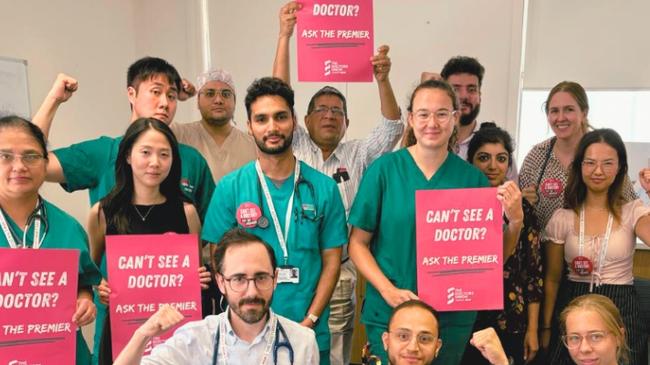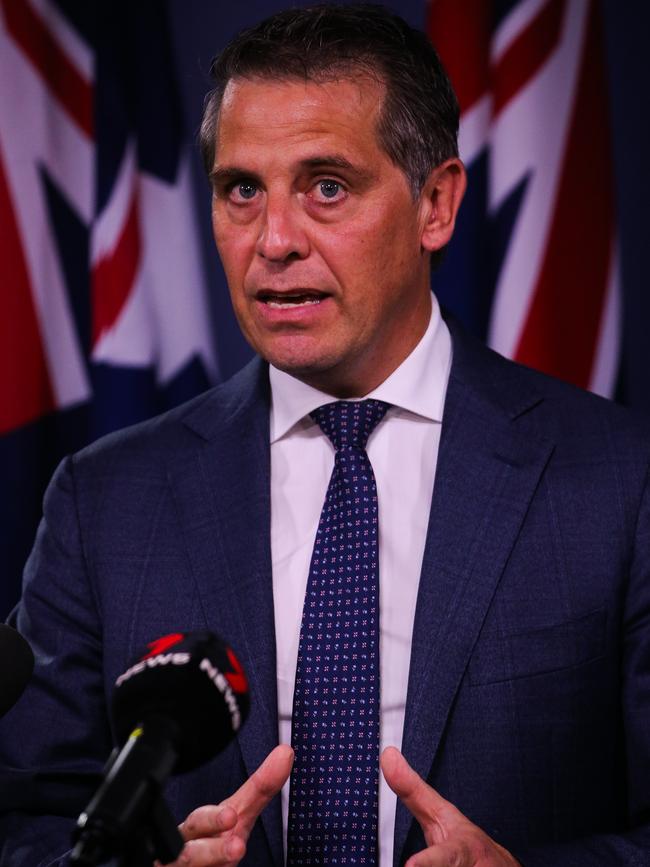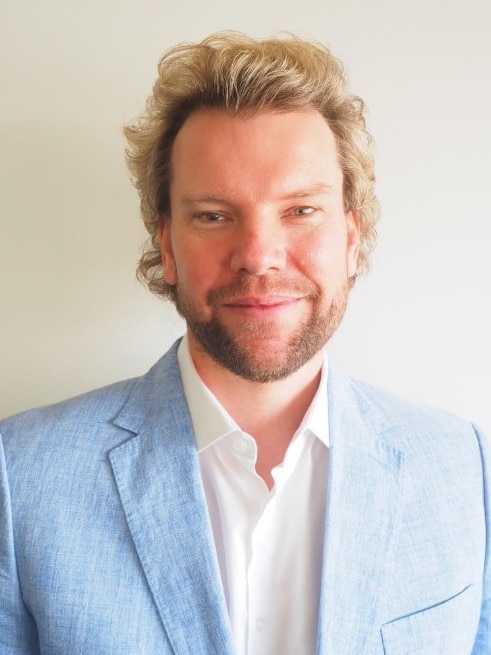‘Not too late’: State government’s appeal against doctors’ strike
The Minns government has pleaded for doctors to step back from threatened strikes exposing the fault lines through NSW’s public hospital system and its chronic workforce shortages.

NSW Health Minister Ryan Park has appealed for the state’s doctors to return to the negotiating table ahead of an unauthorised three-day strike set to paralyse public hospitals.
The Australian Salaried Medical Officers Federation last week warned that it would take industrial action, reducing staffing to public holiday levels from Tuesday to Thursday and delaying non-urgent procedures statewide, after more than a year of fruitless negotiations.
From Tuesday, elective surgeries will be postponed with only emergency procedures to be performed. Outpatient clinics and non-urgent consultations will also be cancelled and non-urgent medical procedures rescheduled.
The NSW government had asked the independent umpire, the Industrial Relations Commission, to intervene and the IRC ordered the union to abandon its plans to strike, an order the union disregarded.
On Monday, Mr Park said the Minns government was preparing for the strikes to go ahead, and disputed the union’s claim that its strikes would not impact emergency patients.
“ASMOF’s strike plans will disrupt our hospitals and health facilities across NSW – both to emergency departments as well as planned surgeries – contrary to the union’s claims (that) patient care will not be impacted. Preparations are urgently underway to manage impact on our patients,” Mr Park said.
“Patients with surgeries postponed will be contacted. We do not want this. We reinstated the independent IRC for this very reason. The IRC allows workers to advance their claims without the limits of the wages cap the previous government imposed, without endangering the welfare and safety of the community. This is not something the government devised on our own – unions and workers fought for it too.


“I share the community’s desire to see our healthcare workers paid more – it’s why we’ve offered a 10.5 per cent multi-year wage increase – on top of the 4.5 per cent already in pockets – and sat down with unions over many years to deliver those pay increases.
“This is not a union without options – it is inexplicable ASMOF would actively choose to jeopardise patient safety over resolving its claim in the IRC.
“I say to ASMOF, it is not too late to return to the IRC.”
ASMOF has already passed the IRC’s deadline to advise members against striking and roll back planned action.
It is seeking a one-off 30 per cent jump in the base rate of doctors in the first year on top of the government’s negotiated pay increase to remain lucrative compared to the going rate for public doctors interstate.
It batted away a counter-offer by the Minns government for a 3 per cent back-paid raise in exchange for a pause on industrial action.
Currently, staff specialists receive $335,669 to $439,600 annually, of which 46 per cent receive the highest rate.
“We want to be very clear with the people of NSW. Patient safety will not be compromised. If you or your family need urgent medical care at any hospital across NSW, our doctors and medical staff will be there to provide it. Emergency departments and critical care units will remain safely staffed,” ASMOF president Nicholas Spooner said.
“With the threat of industrial action looming, instead of making a genuine offer, we have received the same offer the government made in June last year – a 3 per cent pay raise.
“Patients are struggling to see a doctor in NSW public hospitals. That’s because doctors are exhausted, burnt-out and leaving the public sector.
“The reality is doctors are leaving NSW not just because of poor working conditions but because it’s a daily struggle to deliver safe care in this environment. We don’t want to strike. We want to care for our patients safely. However, we will not stand by while the NSW government allows the system to crumble. The system is not sustainable, and we cannot continue like this.”
ASMOF has made clear it will take on any fines incurred by strikes.
It is the latest flare-up in a string of protracted industrial disputes across the state’s public workforce, coming shortly after the mass resignation of NSW’s psychiatrists and alongside months of nurses’ strikes.
When placed next to the drawn-out showdowns with rail workers, firefighters and other medical professionals, it points to storm clouds over the state’s finances.
The simultaneous negotiations have complicated one another, as the government argues it has to disentangle “over a decade of wage suppression” without rubberstamping any excessively generous pay deals that could be held as precedent in other bargaining debates.
NSW psychiatrists sought a 25 per cent pay jump, while nurses and midwives are angling for a 15 per cent one-year pay increase.






To join the conversation, please log in. Don't have an account? Register
Join the conversation, you are commenting as Logout